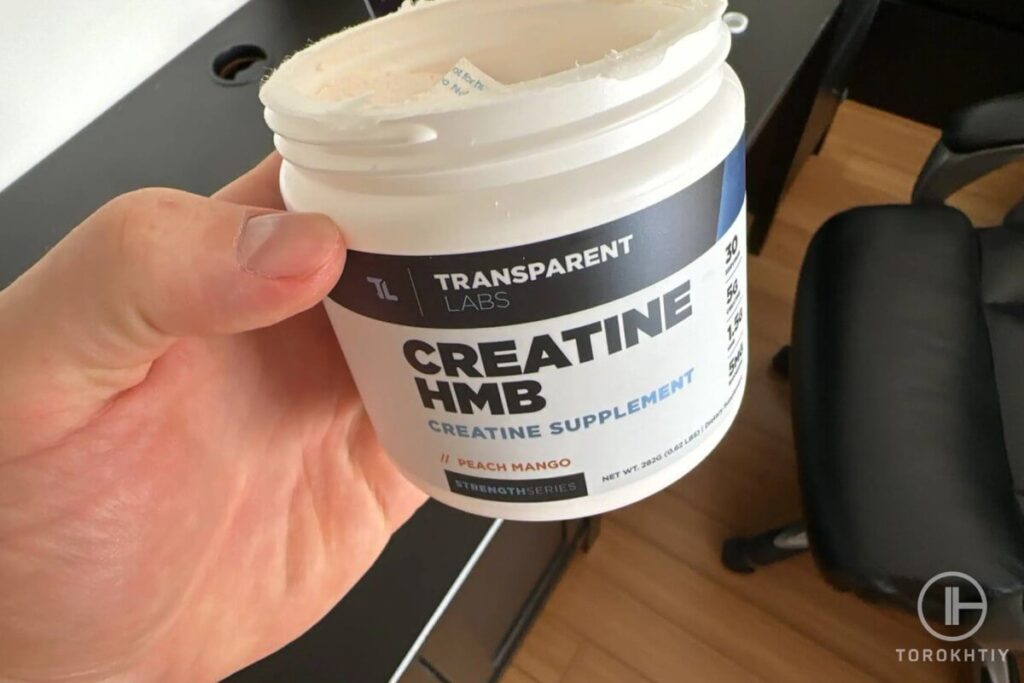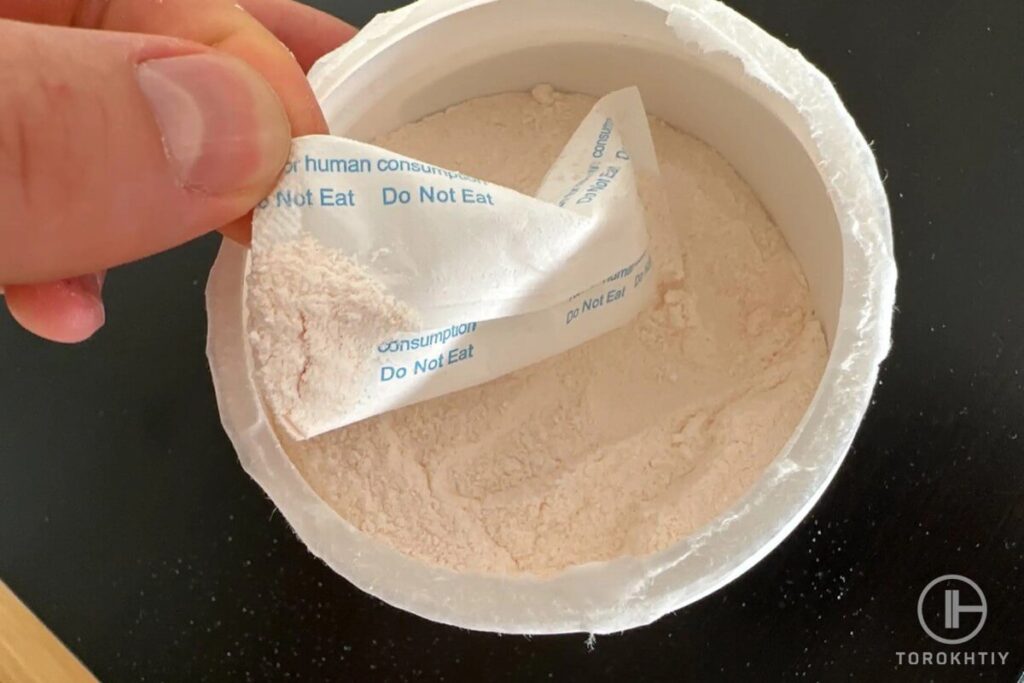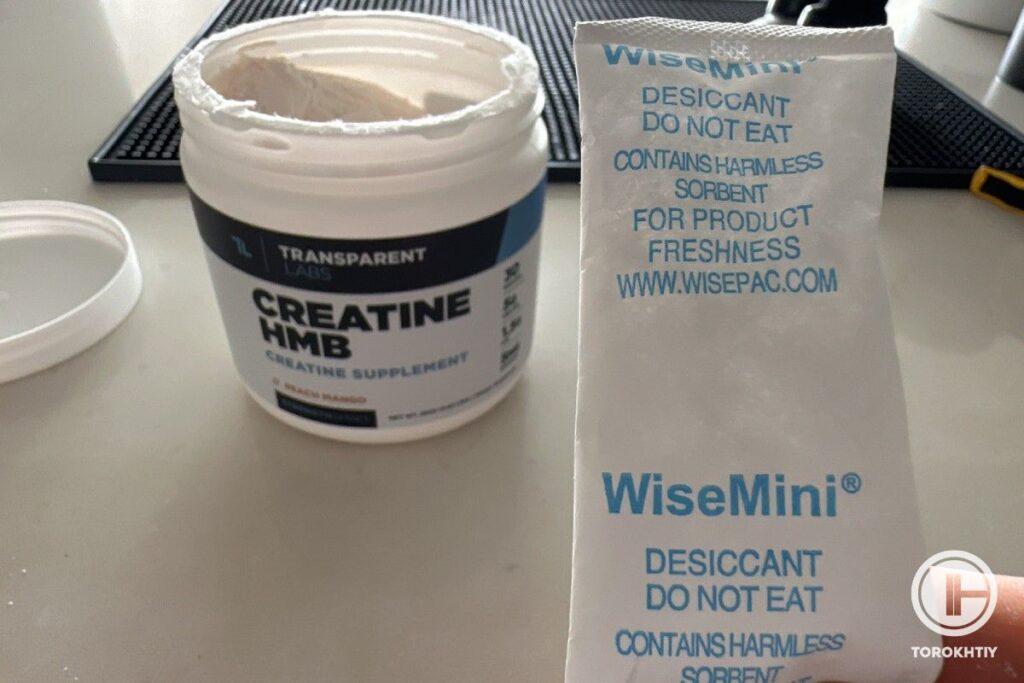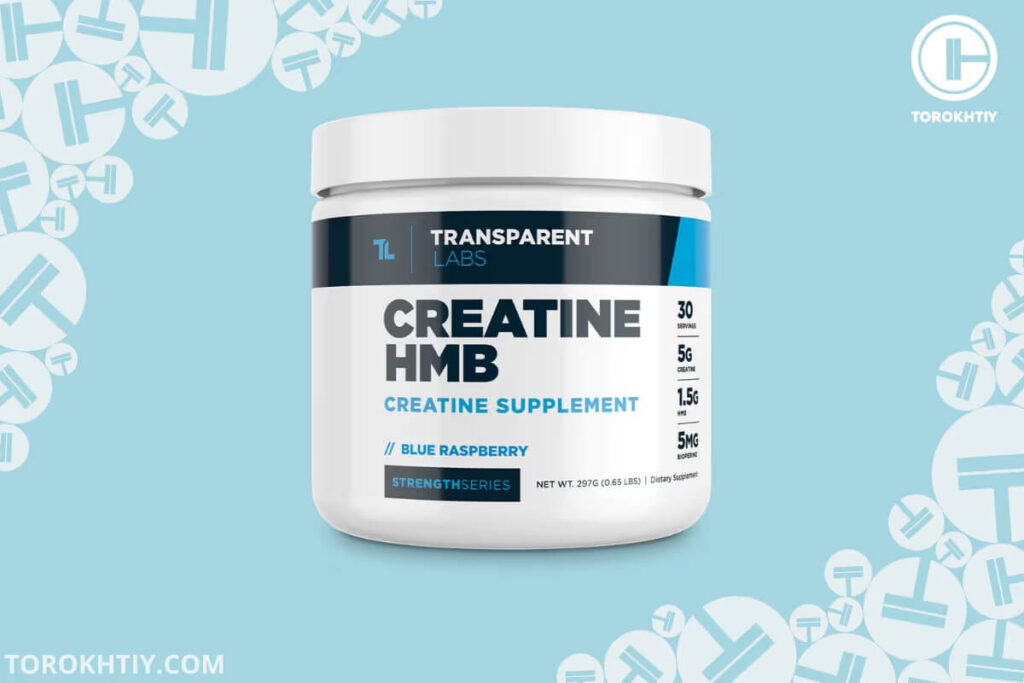Does Creatine Taste Bad? It Doesn’t Have To!
Does creatine taste bad? Creatine is one of the most well-researched and evidence-backed supplements. There are many forms of creatine on the market, some tasting better than others.
A bad taste can stop an athlete from getting the benefits of this key supplement. We will answer what does creatine taste like and discuss how to make it taste better.
Does creatine taste bad? Creatine monohydrate comes tasteless. The synthetic production of the supplement can yield by-products that have a slightly bitter taste. Creatine hydrochloride imparts a sour taste because of the hydrochloride. Fortunately, creatine powder mixes well with many types of beverages, which could improve its taste.

Does Creatine Taste Bad?
Creatine has become a popular supplement to help active individuals improve muscle mass, performance, and recovery. Creatine is an amino acid derivative that primarily comes from red meat and fish.
It can also be produced within the human body in the complex process that involves the amino acids arginine, glycine, and methionine. The industrial production of creatine monohydrate comes from sarcosine and cyanamide.
Sarcosine is an intermediate produced when choline is metabolized to glycine. Cyanamide is a chemical that is commonly used in the agricultural and pharmaceutical industries.
Does creatine have a taste? Creatine usually comes in the form of a tasteless, odorless, and colorless powder. Despite being tasteless, some people find it tastes bad. This may be due to the presence of contaminants that exist during the production of creatine monohydrate. For example, dicyandiamide has a slightly bitter taste.
How To Improve The Taste Of Creatine?
For those wondering why does creatine taste so bad, there are many creative ideas for how to make creatine taste better. Good quality creatine monohydrate is unflavoured and comes in the form of a tasteless and odorless powder, so you could mix it into any beverage you like.
You could mix it with hot or cold beverages or simply get a flavored version and mix it with water. We will cover this in more detail, below.

1. Mix With Tea
The taste of creatine could be improved by mixing it with various beverages. Creatine can be mixed in higher temperature solutions as this increases its solubility without impacting cellular tissue uptake. Therefore, it is possible to mix with hot tea, which some early studies have done.
For example, green tea contains catechins and polyphenols, which have antioxidant and anti-inflammatory properties. Exercise can induce oxidative stress, which is a strain on the body. Polyphenols and catechins in green tea can improve the body’s antioxidant status and reduce the harmful effects from radicals produced during exercise.
2. Mix With Coffee
Creatine could also be mixed with hot coffee. For reference, 400mg of daily caffeine consumption is generally appropriate for most healthy adults. An 8-ounce cup of green or black tea contains 30-50mg of caffeine; an 8-ounce cup of coffee contains 80-100mg of caffeine; and an 8-ounce cup of energy drink contains anywhere between 40 and 250mg of caffeine.
Outside of mixing creatine with caffeine, you could take them separately or take caffeine after a creatine loading protocol if you are doing this.
3. Add It To A Protein Shake
A typical protein powder contains the precursors to creatine: arginine, glycine, and methionine, but not creatine itself. Protein powders often come in a variety of flavors and so you could simply mix creatine powder in with your protein powder in a protein shake. This would be a good and convenient habit to adopt to combine multiple beneficial supplements into one.
4. Add It To A Smoothie
To get in more flavors, you could add creatine powder to a smoothie. Try blending milk, yogourt, or juice as a liquid base, add in any fresh or frozen fruit that you like, and maybe throw in some peanut butter to get a thicker consistency and aromatic flavor shake. You could also try to add in some avocado and this would create a creamy consistency without impacting the taste.

5. Mix It With Juice
Creatine could be mixed with juice, which will impart its own flavors and mask any bitterness that may be associated with creatine on its own. There have been past studies that show that consuming carbohydrates and protein with creatine may enhance creatine uptake.
6. Choose Flavored Creatine
Nowadays there are many different products on the market including flavored creatine with natural flavors and/or stevia extract. This provides a variety of flavors to choose from and will allow you to simply mix the powder with water. If you find drinking the supplement boring, then you could try to freeze them into ice cubes or popsicle trays and eat it that way. This would be refreshing on a hot day!
Should Creatine Taste Sour? Why Does Creatine HCl Taste So Bad?
Depending on the form of creatine, you may find that it tastes sour. In particular, creatine hydrochloride contains hydrochloric acid. The hydrogen ions of acids such as hydrochloric acid impart its sour taste. Therefore, (and for many other reasons) we always recommend sticking to creatine monohydrate.
Transparent Labs Creatine HMB
Transparent Labs Creatine HMB is a great all-inclusive supplement that contains creatine monohydrate 5000mg (5g), beta-hydroxy beta-methylbutyrate (HMB) 1500mg, BioPerine® 5mg, and vitamin D 500IU per 1 scoop serving.
Creatine monohydrate is the most studied and typically used form in dietary supplements since the early 1990s.
As well, it has the most scientific evidence that supports its efficacy and safety and is the cheapest form among all others. Recommended dosages are usually about 3–5g daily or 0.05 g/kg bodyweight daily, so this product provides sufficient creatine monohydrate in 1 scoop.
Data about HMB, muscle growth and performance are very mixed with little evidence justifying enough its use. Some suggest that HMB can be effective for preventing age-related decline in muscle mass and preserving strength and body composition in older adults who are sedentary. Supplementation is typically in the range of 1–3 grams daily, which this product covers.
BioPerine® is a patented piperine extract. Piperine is a compound that is found in black pepper and is responsible for its pungency. It has been shown to increase nutrient absorption, boost cognitive function, and alleviate inflammation. Doses of 5–20mg have been used in studies and considered as safe. This product contains 5mg.

Vitamin D has many roles in bone health, immunity, chronic disease prevention and mitigation, and much more. Recommendations show that Adults 19–70 years old require 600IU daily and adults 71 years of age and older require 800IU. However, many people may require much more than the guidelines suggest. This product contains a good amount of vitamin D to contribute to meeting daily requirements alongside a regular diet and/or other supplements.
You could take the supplement with or without food, mixing 1 scoop with 10–12 ounces of a beverage of choice such as those discussed above. This particular product has 10 flavors to choose from!
This product is certified by Informed Choice, which means that it has been tested for impurities and banned substances so that it is a product you can trust.
FAQ
Why Does My Creatine Taste Bad?
Taste is very individual. You may find that your creatine tastes bad if it is an unflavoured powder since on its own, it is possible that creatine monohydrate tastes bitter and creatine hydrochloride tastes sour. You could try a flavored powder or mix the supplement into any beverage of choice to increase its palatability.
Does Creatine Have A Strong Taste?
Creatine is a tasteless powder. There may be some bitterness or sourness depending on the quality and type, but the strength of this taste depends on your individual taste perception.
Why Can’t I Stand The Taste Of Creatine?
If you have a strong taste perception, then you might find that the taste of creatine is unpalatable. There is a possibility that the perception of taste and repulsive reaction to bitter and sour tastes could be linked to evolution and survival. Historically, bitter and sour tastes were associated with poisonous inedible plants or rotting protein-rich food that had to be avoided.
Some people have stronger taste perceptions than others and so you might find that you can’t stand the taste more than someone else. If you normally do not respond strongly to off flavors, it could be that the creatine you have tried is of low quality as low quality supplements in general have likely contain more by-products that incur bad flavors.
Conclusion
Creatine has been known to help improve performance, recovery, and muscle mass to some degree. It comes in various forms and can taste differently to different people. Creatine monohydrate can taste bitter and creatine hydrochloride can taste sour. It could be helpful to blend creatine in different liquids, hot or cold, to improve its taste so you could reap the benefits from this effective supplement! You could also try a flavored powder, such as Transparent Labs’ Creatine HMB, which comes in 10 different flavors. Have you tried creatine before? How did you mix it to improve the taste? We’d love to hear your thoughts, below!
Also read:
- Types of Creatine
- How Much Creatine Hcl Should I Take
- Why Is Creatine So Expensive
- Does Creatine Expire
- Does Creatine Help With Cutting
- What Happens if You Take Creatine Without Working Out
- Does Creatine Make You Stronger
- Creatine vs Glutamine
- L Carnitine or Creatine
References:
- G Benzi, “Creatine as nutritional supplementation”, PubMed, https://pubmed.ncbi.nlm.nih.gov/11317142/
- “Sarcosine”, ScienceDirect, https://www.sciencedirect.com/topics/chemistry/sarcosine
- “Cyanamide”, ScienceDirect, https://www.sciencedirect.com/topics/pharmacology-toxicology-and-pharmaceutical-science/cyanamide
- “Dicyandiamide”, AtamanChemicals, https://www.atamanchemicals.com/dicyandiamide_u29862/
- Jose Antonio, “Common questions and misconceptions about creatine supplementation”, NCBI, https://www.ncbi.nlm.nih.gov/pmc/articles/PMC7871530/
- Hadi Nobari, “Green Tea Used as an Ergogenic Aid”, NCBI, https://www.ncbi.nlm.nih.gov/pmc/articles/PMC8750450
- “How Much Caffeine is Too Much?”, FDA, https://www.fda.gov/consumers/consumer-updates/spilling-beans-how-much-caffeine-too-much
- G R Steenge, “Creatine retention in humans”, PubMed, https://pubmed.ncbi.nlm.nih.gov/10956365/
- Carl Pfaffmann, “Physiological basis of taste”, Britannica, https://www.britannica.com/science/human-sensory-reception/Physiological-basis-of-taste
- Carly Fazio, “Alternative Forms of Creatine Supplementation”, PubMed, https://pubmed.ncbi.nlm.nih.gov/36000773/
- “Vitamin D”, National Institutes of Health, https://ods.od.nih.gov/factsheets/VitaminD-HealthProfessional/
- “How does our sense of taste work?”, NCBI, https://www.ncbi.nlm.nih.gov/books/NBK279408
Why Trust Us?
With over 20 years in Olympic Weightlifting, our team does its best to provide the audience with ultimate support and meet the needs and requirements of advanced athletes and professional lifters, as well as people who strive to open new opportunities and develop their physical capabilities with us.
By trusting the recommendations of our certified experts in coaching, nutrition, dietology, and sports training programming, as well as scientific consultants, and physiotherapists, we provide you with thorough, well-considered, and scientifically proven content. All the information given in the articles concerning workout programming, separate exercises, and athletic performance, in general, is based on verified data. We ensure that you can rely on our professionals’ pieces of advice and recommendations that can be treated as personalized ones which will benefit you and fully meet your needs.
The product testing process is described in more detail here
Author: Jacek Szymanowski
Certified Nutritionist,
M.Sc.Eng. Biotechnology
Performance Architect,
Strength and Conditioning Specialist
With over 30 years of fighting experience, specialization in nutrition coaching for athletes, and expertise in metabolic health and dietary strategies, Jacek offers a comprehensive approach to optimizing your performance and well-being. Backed by a Master of Science degree in Biotechnology, Jacek remains at the forefront of scientific advancements, ensuring that his coaching is always evidence-based and up-to-date.








